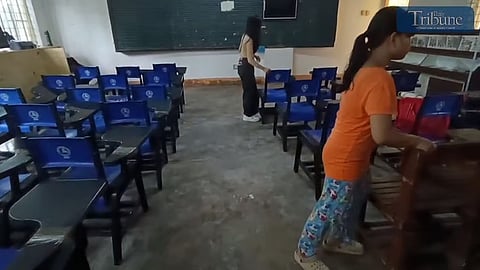
- NEWS
- the EDIT
- COMMENTARY
- BUSINESS
- LIFE
- SHOW
- ACTION
- GLOBAL GOALS
- SNAPS
- DYARYO TIRADA
- MORE

A UNICEF study suggests that schools can achieve top academic performance even with limited resources if they have strong support from local officials and community members.
The study, titled “Local Financing and Learning Outcomes in the Philippines: A Special Education Fund (SEF) study,” was commissioned by UNICEF and the Department of Education (DepEd) to examine the impact of readily available educational resources on policy and decision-making in the short to medium term.
It also focused on funding for maintenance and operations of public primary and secondary schools which is part of a larger body of research UNICEF is conducting on children’s rights in the Philippines.
Covering 173 school divisions in 16 regions and 77 provinces, the study found that school maintenance and other operating expenses (MOOE) and the municipality’s Special Education Fund (SEF) constitute the bulk of school resources.
However, the current relationship between these two funds could be improved for better complementarity and effectiveness, the study noted.
UNICEF highlighted Gapan East Integrated School in Nueva Ecija as an example as despite having low MOOE and SEF funding, the school ranked among the top five school divisions in the National Achievement Test for Grade 6.
“One reason for this is good planning and implementation by the school, and another reason is the strong support of the local government unit to education,” said UNICEF.
